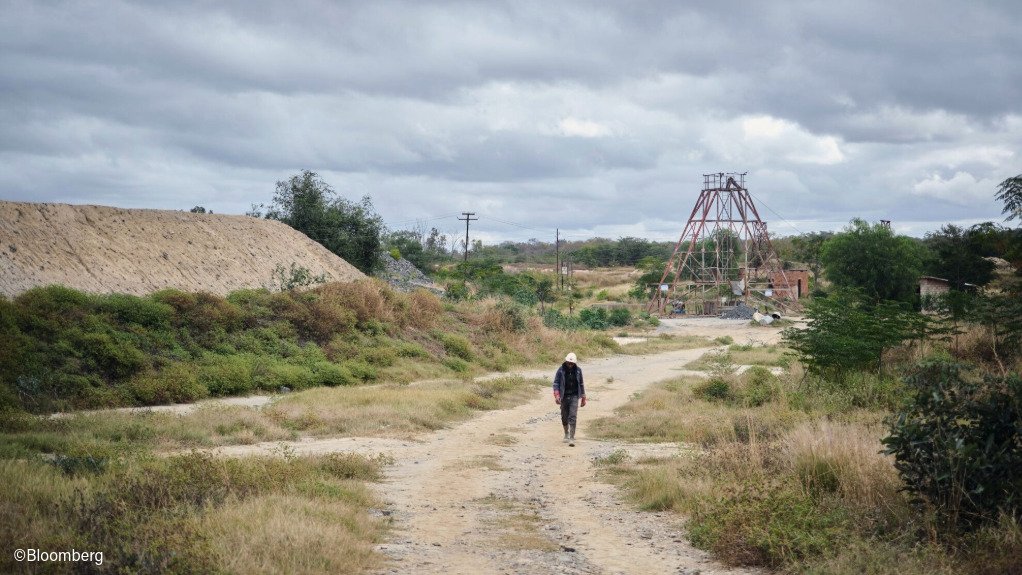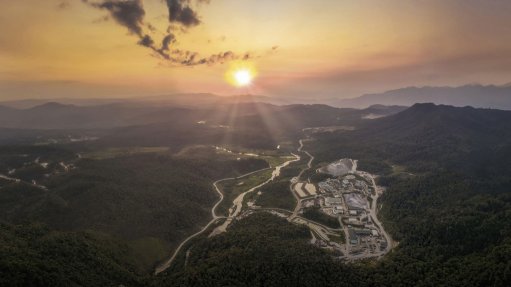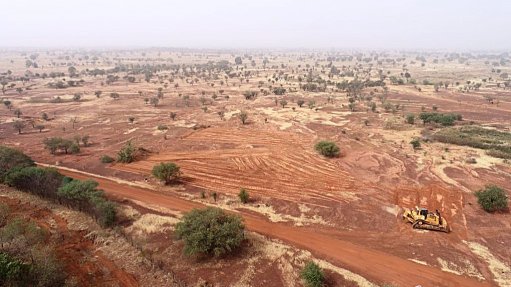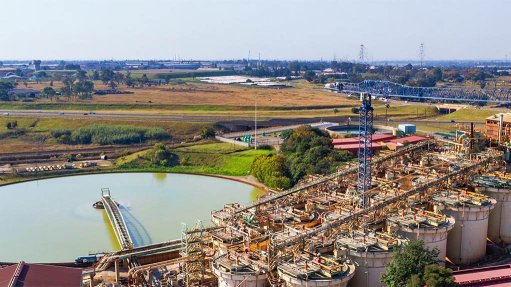Gold rally brings riches to rural Zimbabwe
In Filabusi, in south-eastern Zimbabwe the streets are packed with BMW X5s and Land Rover Defenders, modern houses paid for in cash are springing up and whisky is only sold by the bottle in the small town’s bars.
The three-year surge in gold prices, driven to a record this year as US President Donald Trump’s trade war bolstered its allure as a safe-haven, is enriching the country’s more than 700 000 informal, or artisanal, miners. They are flocking to gold mining belts and throwing a lifeline to an economy that’s been in economic turmoil since the turn of the century.
In the first five months of this year, those miners almost doubled the metal they delivered to a state refinery from a year earlier to more than 11 t, swelling the country’s export income. At the current pace of production the country could earn a billion dollars more from gold shipments this year than in 2024.
“The prices have been very favorable to the miners which is something we are so happy about,” said Wellington Takavarasha, the president of Zimbabwe Artisanal and Small Scale for Sustainable Mining Council. “This year is looking very good. We must capitalize on this rally.”
It’s a scene that’s playing out across Africa for good and bad. Ghana, the continent’s biggest producer, expects to double the amount of gold it gets from small-scale miners to $12-billion by the end of next year and Ethiopia’s central bank said record deliveries of the metal are boosting its reserves. In the eastern regions of the Democratic Republic of Congo rebel groups are pressing ordinary citizens into mining the metal to capitalise on the price surge.
For the about 4% of people living in Zimbabwe, and their dependants, who are involved in the gold mining its been a vital source of income in a country where a botched and violent land reform program in 2000 saw exports slump, setting off a spiral of famine, hyper-inflation and currency collapses that persists to this day. Formal employment has withered and millions of citizens have emigrated to South Africa, the UK and other countries in search of economic opportunities. For now it’s their only hope and one that depends on the high prices holding. So far there’s no sign that the rally will come to end. The price of the metal has surged 22% since Trump’s inauguration and is up by three-fifths since the beginning of last year. It hit a record of $3 432 an ounce on May 6 and Goldman Sachs forecast it will reach $3 700 by year end.
That’s pushed Zimbabwe’s central bank to paying cash for gold deliveries, targeting a record 40 t of purchases this year after it earned $2.5-billion in 2024, a 37% jump from the year earlier. Artisanal producers supplied three-quarters of the metal delivered in April, whereas a few years ago the majority of their output would have been smuggled out of the country.
For artisanal workers like Mxolisi Dube, clad in navy blue work overalls with a miner’s torch strapped to his head as he walks through Filabusi, the gold price rally has been a boon. The 33-year-old began mining for gold illegally in 2008, becoming a “makorokoza,” a reference in the Ndebele language to the action of sifting gold-bearing river silt in a pan.
But now with higher prices and the cooperation of mine owners, who have have begun to invite artisanal workers onto their properties to boost production, his earnings have surged.
“You are assured of getting something at the end of the month,” said Dube, who has a copper dental filling and a brass chain around his neck. “You are protected. If you are not under a company you always have to run away.”
Mine owners, struggling with dilapidated equipment and a lack of finance, are increasingly urging those operators to swap the pans they used to sift through river sand for gold flecks for picks and shovels to help them extract as much gold ore to process as quickly as possible.
“This means we always have ore available and are milling more,” said Meli Nkulumo, plant manager at Macoomber 7 mine, which lies 12 miles west of Filabusi down winding dirt roads. Artisanal miners were invited onto the property two years ago.
At the mine, workers use Elon Musk’s Starlink internet service to compare the prices offered by the central bank to global benchmarks. Goldprice.org is their favored website.
“Higher gold prices are better for everyone,” said Thulani Ndlovu, the acting mine manager. “We can also look forward to a raise in salaries.”
Still, it’s backbreaking work that’s carried out around the clock. The miners break up rocks underground with picks, shovel it into a loader which is then winched to the surface. During their eight-hour shifts their only sustenance is maheu, a drink made from fermented corn meal.
But for artisanal miners the price surge has been life-changing and nowhere is that more evident than in Bekezela, a suburb of Filabusi where property owners are busy putting up brick houses ringed by electric fences and equipped with water storage tanks and solar panels. The town council is having to rezone more land for residential and commercial use and at car washes 4x4s queue to have the dust of the surrounding savannah rinsed off.
Drinking holes are busy with “all sorts of people” spending big, Thabo Mpofu, the manager of Next Generation bar, said, adding that he has seen clients buy bottles of Hennessey Cognac and pour them out on the ground as a show of wealth.
It’s also curbed crime including invasions of local mines by illegal operators.
“There’s nothing bad here that happens,” said Melusi Nyoni, the manager of Fred and Fernando mines, which are on the outskirts of Filabusi town, He now allows artisanal miners to work in shafts as deep as a kilometer (0.6 miles). “There is gold just all over,” he said.
Still, with rudimentary equipment and limited safety protocols, digging up the ore is dangerous work.
Informal miners accounted for 87% of the 186 deaths in Zimbabwean mining accidents, the Chamber of Mines said in its last annual report. As recently as late May four died at a mine near Chegutu in northern Zimbabwe when a wall of earth collapsed onto them, according to local media reports.
But as long as the rally lasts, that’s little deterrence for artisanal miners who until recently were eking out a living by camping out and panning for gold in remote wild areas for several months.
“The high prices mean in the near future I will also be seen in a car,” says Dube, a father of four. “I want a Toyota Hilux 4x4, with a 2.7 liter engine.”
Article Enquiry
Email Article
Save Article
Feedback
To advertise email advertising@creamermedia.co.za or click here
Announcements
What's On
Subscribe to improve your user experience...
Option 1 (equivalent of R125 a month):
Receive a weekly copy of Creamer Media's Engineering News & Mining Weekly magazine
(print copy for those in South Africa and e-magazine for those outside of South Africa)
Receive daily email newsletters
Access to full search results
Access archive of magazine back copies
Access to Projects in Progress
Access to ONE Research Report of your choice in PDF format
Option 2 (equivalent of R375 a month):
All benefits from Option 1
PLUS
Access to Creamer Media's Research Channel Africa for ALL Research Reports, in PDF format, on various industrial and mining sectors
including Electricity; Water; Energy Transition; Hydrogen; Roads, Rail and Ports; Coal; Gold; Platinum; Battery Metals; etc.
Already a subscriber?
Forgotten your password?
Receive weekly copy of Creamer Media's Engineering News & Mining Weekly magazine (print copy for those in South Africa and e-magazine for those outside of South Africa)
➕
Recieve daily email newsletters
➕
Access to full search results
➕
Access archive of magazine back copies
➕
Access to Projects in Progress
➕
Access to ONE Research Report of your choice in PDF format
RESEARCH CHANNEL AFRICA
R4500 (equivalent of R375 a month)
SUBSCRIBEAll benefits from Option 1
➕
Access to Creamer Media's Research Channel Africa for ALL Research Reports on various industrial and mining sectors, in PDF format, including on:
Electricity
➕
Water
➕
Energy Transition
➕
Hydrogen
➕
Roads, Rail and Ports
➕
Coal
➕
Gold
➕
Platinum
➕
Battery Metals
➕
etc.
Receive all benefits from Option 1 or Option 2 delivered to numerous people at your company
➕
Multiple User names and Passwords for simultaneous log-ins
➕
Intranet integration access to all in your organisation





















